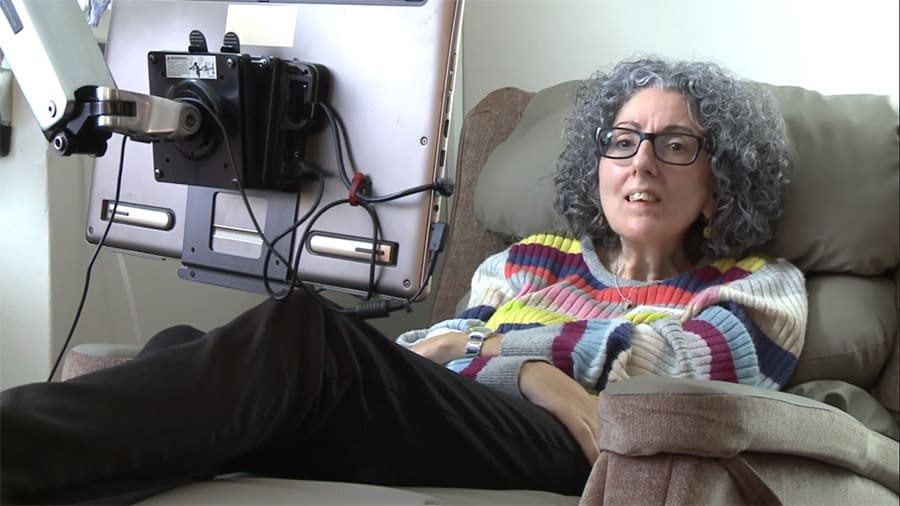Artist with MND who paints with her eyes voices support for Lifelites and Eyegaze tech

A lady with Motor Neurone Disease has been able to paint with her eyes and communicate with others thanks to life-changing assistive technology Eyegaze.
Sarah Ezekiel was diagnosed with Motor Neurone Disease (MND) in 2000, when she was 34 years old. At that point, she had a little girl and was pregnant with her second child. Her symptoms included slowed speech and weakness in her limbs. Today, she can no longer speak nor move her body.
But now, with the help of eyegaze, an adaptive technology that enables her to use a computer to communicate and paint, she says her situation has remarkably improved. She has been able to access the internet, write emails, read, and ‘speak’ just by moving her eyes across the screen.
Sarah’s dream has always been to become an artist. She commented: “My diagnosis was like a thunderbolt and changed my life forever. I was absolutely terrified and in total shock. Then I discovered that Eyegaze technology can be used to draw and paint.
“Having studied art and art history, I had always wanted to be a fine artist. My surroundings suddenly became more colourful and I felt a new lease of life.
“Communication is a human right and is imperative. I felt frustrated when I lost my speech and it’s even more difficult for children to be unable to express themselves.”
In addition, Sarah is a Lifelites patron, advocating the importance of technology to communicate, paint and play. The charity is donating Eyegaze as part of its packages of special technology to give life-limited children using hospice services the chance to play, be creative and communicate, even if the only part of their body they can move is their eyes.
Eyegaze makes it possible for these children to paint pictures, play games, write and communicate by tracking the child’s eye movements, enabling them to move the cursor around a computer screen.
With the help of this pioneering technology, children who struggle to communicate with their family and their carers are able to do so – often for the first time.
The assistive technology also allows children who have limited movement in their hands or are unable to speak to have the unique opportunity to express their needs, thoughts and emotions. They can tell their carers what they would like to eat or drink and can tell their families that they love them.
Lifelites has been donating life-changing packages of technology for children using hospice services for over 20 years and supports every children’s hospice service across the British Isles.

